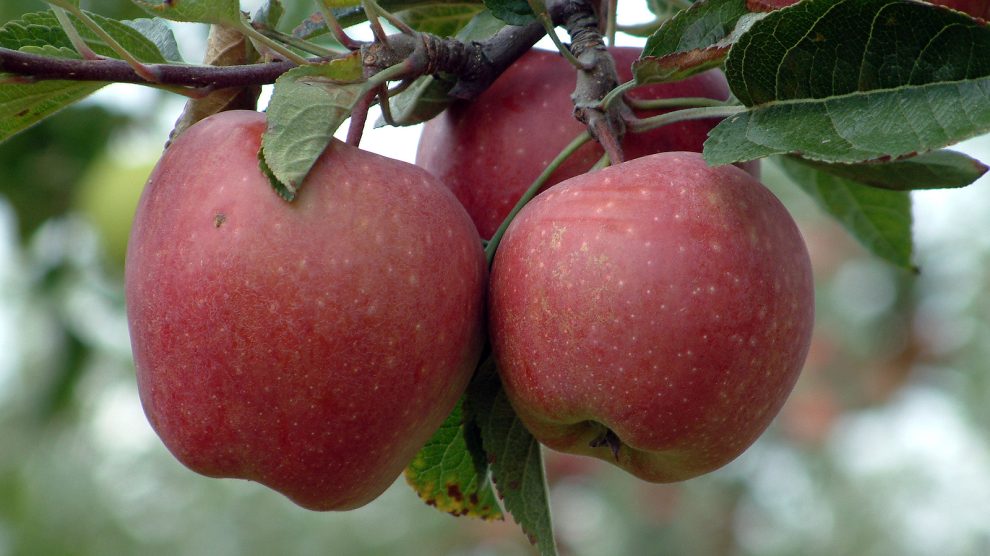As North Macedonia and Armenia move closer to international institutions Russia deems hostile, Moscow has sought to punish them by restricting agricultural imports. That may be backfiring.
For many agricultural producers in emerging Europe, Russia is a key market. Yet, while much media coverage of the economic impact of the war in Ukraine has focused on European countries finding new sources for energy and other products previously imported from Russia, much less has been written about the effects on European exporters.
- Adopting green policies can reduce risks to North Macedonia’s agriculture sector
- Uneven growth forecast for emerging Europe, but the mood is brightening
- In the Western Balkans, the past again threatens the future
Russian President Vladimir Putin banned the import of agricultural products in 2014 from countries that sanctioned Moscow after its annexation of Ukraine’s Crimean peninsula. Russia embargoed fruit imports and ended duty-free exemptions from Moldova that same year after it signed a free-trade deal and association agreement with the European Union.
Russia is now once again seeking to employ its economic leverage as a means of punishing small countries—this time North Macedonia and Armenia—that side against it in key international disputes.
Apple diplomacy
North Macedonia is now a member of NATO and is a candidate for accession to the EU. To stay on course to join the EU, it inaugurated the Western Balkans QUAD initiative with Albania, Kosovo, and Montenegro to bring its foreign policy fully into full alignment with the EU’s Common Foreign Security Policy (CFSP).
North Macedonia is fully complying with United States and EU sanctions on Russia for its invasion of Ukraine and expelled 11 Russian diplomats in 2022 for violating diplomatic norms.
In what is widely believed to be a retaliatory measure, Russia temporarily restricted the import of all plant products from North Macedonia after it claims a “highly dangerous” stink bug was found on an imported Macedonian apple.
Russia had been one of the largest markets for Macedonian agricultural exports, and North Macedonia’s economy is still heavily dependent upon its agricultural sector.
“At the moment, apple growers who sell a large percentage of their product on the Russian market are severely affected by the temporary ban on imports of Macedonian products, specifically fresh fruit and vegetables,” said Dejan Beshliev, executive director of the Macedonian-Russian Chamber of Commerce.
Russia’s measures, however, could be pushing North Macedonia closer to neighbouring Bulgaria—a longtime foe which blocked the start of EU accession talks over historical disputes.
In April 2022, North Macedonia agreed to import wheat from Bulgaria, and Macedonian fruit exports to Bulgaria also drastically increased.
North Macedonia exported 20.9 million euros worth of food and live animals to Bulgaria in 2022—up from only 13.9 million euros in 2021. For reference, North Macedonia has often taken in between 35 and 45 million US dollars in annual revenue from trade with Russia, mainly from agricultural exports.
There are still no signs of a mass exodus of Russian firms from North Macedonia’s economy, and Russia maintains a geopolitical interest in having a presence in the EU candidate’s economy.

Souring milk, and relations
On March 31, just days after Armenia took steps towards ratifying the International Criminal Court’s (ICC) founding Rome Statute, Russia banned the import of Armenian dairy products. In a statement, Russia’s agriculture regulator cited the use of Iranian milk and other raw materials banned in Russia by Armenian dairy firms.
“If our relations were going smoothly, then such issues would be resolved via internal channels of communications, without any public messages and statements,” said Babken Pipoyan, head of an Armenian consumer rights group.
Armenia is a member of both the Eurasian Economic Union (EEU) and Collective Security Treaty Organisation (CSTO), and Russia is the driving force behind both. However, Yerevan’s relations with Moscow have become more tense since the CSTO failed to come to Armenia’s aid after an Azerbaijani incursion into its territory killed hundreds in September 2022.
Yerevan has also moved towards adopting the ICC’s founding treaty, which would bring it under the full jurisdiction of the court. On March 17, the ICC issued an arrest warrant for Putin for his culpability for war crimes committed by Russian forces in Ukraine.
The Russian foreign ministry called Yerevan’s plan “absolutely unacceptable”.
Even as Moscow retaliates, it has sought to stay relevant in Armenia’s peace process with Azerbaijan by hosting and mediating negotiations even as the US and EU play an increasing role. After the EU deployed a civilian monitoring mission to Armenia’s border with Azerbaijan last autumn, Armenia’s prime minister Nikol Pashinyan seems to be trying to shop for the best security guarantees from multiple partners—including Iran and India—and trying to hold Russia and the CSTO’s toes to the fire.
On May 22, Pashinyan said if the CSTO does not respect its treaty obligations to Armenia, “I am not ruling out that Armenia will take a decision to withdraw from the CSTO”.
Unlike many news and information platforms, Emerging Europe is free to read, and always will be. There is no paywall here. We are independent, not affiliated with nor representing any political party or business organisation. We want the very best for emerging Europe, nothing more, nothing less. Your support will help us continue to spread the word about this amazing region.
You can contribute here. Thank you.







Add Comment